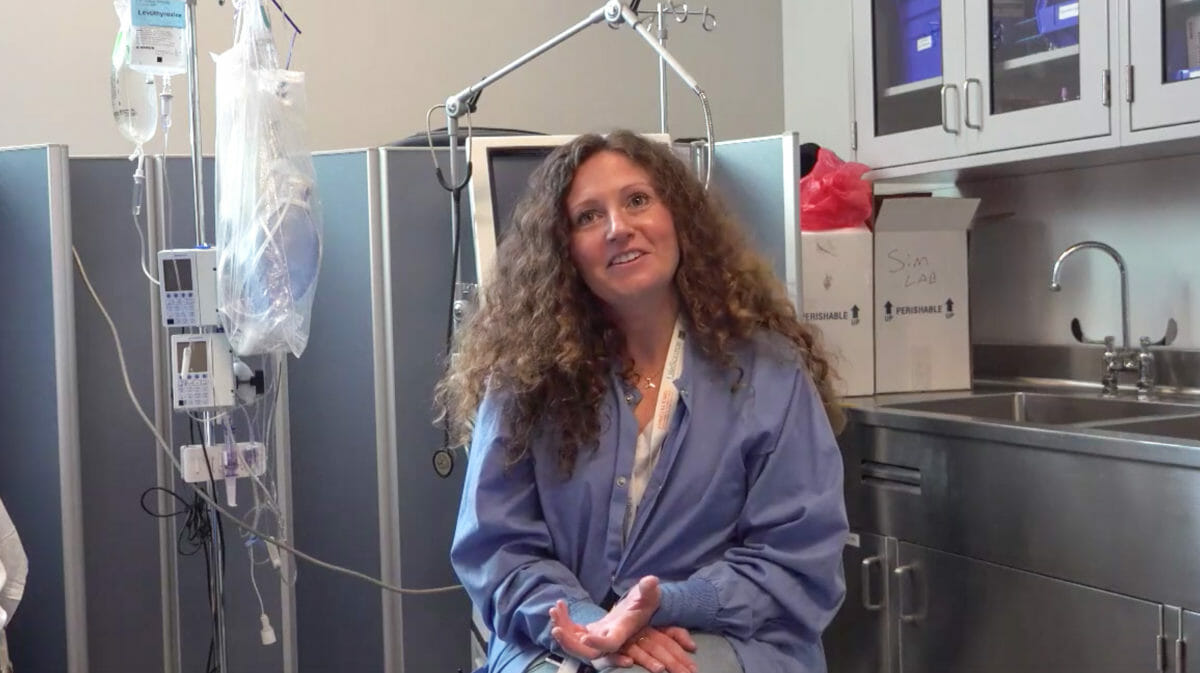Meet Our Team: Erin Schaden, Organ Donation Coordinator
Erin Schaden is one of LifeSource’s Organ Donation Coordinators. She has been with LifeSource since 2017 and has experience working in Intensive Care Units. We sat down with her to learn more about her and the work she does at LifeSource.

Why did you Decide to Work at LifeSource?
I decided to work at LifeSource for a few reasons. First, I had close experience with the other side of transplant in my role in the MICU at UMMC, working with both patients waiting for an organ and post-transplant recipients. A few times I was able to get the call saying a patient was going to get new lungs and it’s such a powerful moment! I knew, though, there was another side to that call and I was interested in experiencing the full circle of donation. Additionally, I was looking for an impactful career that would bring a new challenge different from direct bedside nursing. LifeSource seemed like the perfect fit and it has not disappointed!
What does an Organ Donation Coordinator do?
My main responsibility is the evaluation and management of donors. I order tests, make sure the organs are safe to transplant, review the results and determine what they mean. Ultimately, is this organ healthy enough to be transplanted? If the answer is yes, I work to keep those organs functioning until surgery, maybe by ordering medications.
While that is happening, I’m entering the donors medical information (age, blood type, size, tissue type, etc.) into the United Network of Organ Sharing (UNOS) system in order to identify matches for transplant. The UNOS system responds with a list for each organ that is available for transplant for that donor. Meaning, there is a list for lungs, a list for kidney’s, a list for liver, and so on. Then one by one, the transplant surgeon for the potential recipient at the top of the list gets to look at all the stats of the donor and decide if this is in fact a good match for that recipient.
There is only one surgery to recover a donor’s life-saving gifts. So, if a person is able to donate multiple gifts (for example, kidney’s, liver and heart), multiple surgeons will be coordinated to recover those gifts during a single surgery. Coordinating all these medical professionals is part of the work LifeSource does, in addition to working with donor families and coordinating with their needs.
I’m with the donor, taking care of them, all the way through surgery. My job only ends once the their life-saving gifts are with the transplant surgeons.
What would you like the general public to know about donation?
It’s rare. It’s such an incredible gift. The process for donation is long and tedious because it is such a rare and important event. The process itself, the fact that we’re able to do this is remarkable thing and to be part of it is very humbling. To work with a donor and understand what they are actually giving -life to someone else- is incredible.
What’s something they get wrong in TV and movies that drives you crazy?
There are a lot of things – the big one for me is the timing.
On TV a person comes into the ER, passes away and right away they are scheduled for donation and lives are saved within a few hours. In reality, it takes time to evaluate a potential donor, to run tests and ensure that organs are safe for transplant.
TV also makes it seem like if there is a donor in a hospital, someone in that hospital is going to be the recipient – and that’s not how it works at all. The doctors and nurses at a hospital don’t have a say in whether or not a person will be a donor, and they don’t decide who the recipients of those gifts will be.
Media makes it seem like donation happens all the time but it is incredibly rare. (Only 1% of those registered are able to be organ donors when they pass away).
How has the process changed since COVID?
Anyone who has passed away because of complications having to do with COVID is ruled out for donation.
We test all potential donors for COVID and we require two negative tests before we move ahead with donation. Even if a person tests negative for COVID but had symptoms consistent with COVID patient, we would not move forward with donation.
 Skip to main content
Skip to main content
